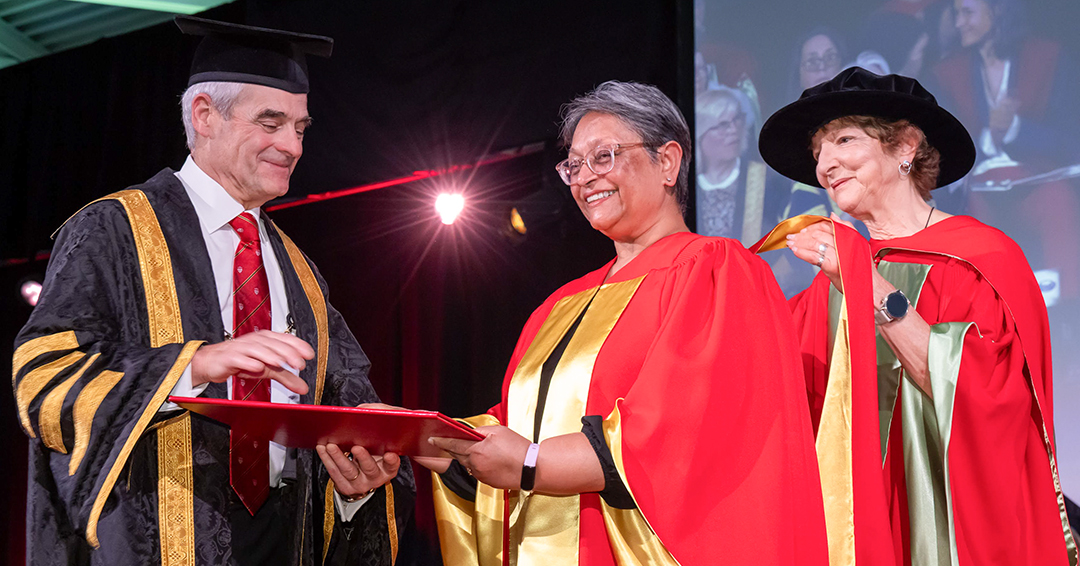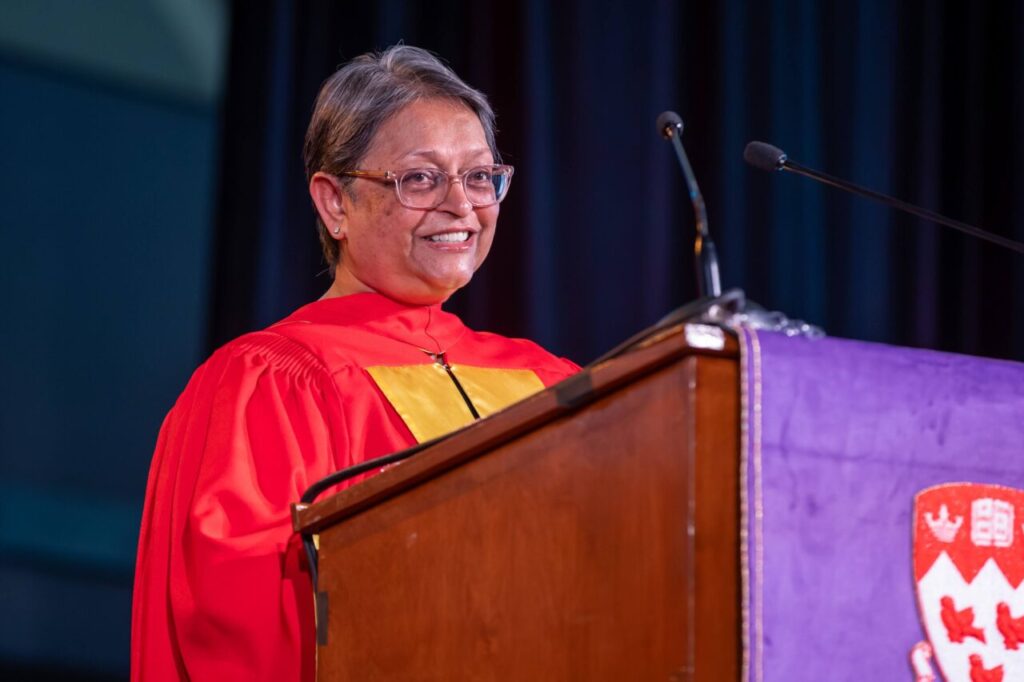
Quarraisha Abdool Karim, PhD, a South African epidemiologist specializing in infectious diseases and one of the world’s leading AIDS researchers, was in Montreal recently to deliver the Andrew F. Holmes VP-Dean of Medicine and Health Sciences Distinction Lecture on May 26 and to be conferred an Honorary Doctorate, Doctor of Science honoris causa at Spring Convocation on May 27. A trio of eminent McGill infectious disease experts – Madhukar Pai, Chair, Department of Global and Public Health, Marcel Behr, Director, McGill Interdisciplinary Initiative in Infection and Immunity and Chen Liang, Director, Mark Wainberg Centre for Viral Diseases – put questions to Prof. Abdool Karim about global health, HIV research funding and more.
Madhukar Pai: Global health, humanitarian aid, and multi-lateralism are under attack right now. In this period of crisis, where do you find hope? What inspires you to keep going?
Quarraisha Abdool Karim (QAK): My hope comes from the ubiquity of science, on it transcending political and cultural barriers as the universal language to build bridges between the peoples of this world. Our interconnectedness and shared vulnerabilities underscore the importance of working together as scientists in service of humanity to generate knowledge and innovations to make the world a better place for everyone. It emanates from a lived reality in apartheid South Africa and being an anti-apartheid activist involved in the daily struggle for freedom, human rights and justice, I have learnt and know the importance of human dignity and inclusiveness in all facets of life including in my scientific endeavours. In addition to my research in HIV/AIDS that spans over 37 years, we stand here today because of the power of global solidarity and partnerships in science that have saved millions and helped make the world a better place for generations to come.
Marcel Behr: It has been almost 40 years since the first antiretroviral became available. What will HIV care look like 40 years from now?
QAK: I remain optimistic that the current innovations we have in hand and that are under investigation will enable us to realize the UN 2030 goal to end AIDS as a public health threat if member states remain committed and accountable for this commitment made in 2016 to live with HIV as an endemic condition. In 40 years time I hope that we have a vaccine and cure and can declare HIV eliminated and eradicated.
Chen Liang: $40,000 vs $40: how can we make the nearly 100% effective prophylactic antiretroviral drug Lenacapavir accessible to people in Africa who need it the most and save them from HIV infection?
QAK: We have to imagine and believe in the role of Lenacapavir as a true game-changer for ending AIDS in sub-Saharan Africa and particularly for young women 15-24 years who bear the brunt of the HIV epidemic and ensure its availability and affordable access particularly in high burden communities in eastern and southern Africa with high, ongoing new HIV infection rates during these 8 years of vulnerability and see Lenacapavir as more than an additional prevention or pre-exposure prophylaxis (PrEP) choice in health facilities
Bonus question: What advice do you have for graduates in global health and infectious diseases fields as they begin their careers?
QAK: At this tumultuous and unprecedented moment globally, science is needed more than ever to tackle several of the world’s most complex challenges, amongst others, pandemics, climate change, man-made famines in the midst of conflicts and widening inequalities and distrust within and between countries. But, you are also stepping into a moment of extraordinary possibility. Whether you go on to work in labs, classrooms, clinics, or communities—remember that science, knowledge, and leadership must always be tied to justice. Ask bold questions. Build bridges. Stay curious. And above all, act with empathy. You have reached a critical juncture in your life and as you embark on this new chapter you will be faced with many decisions and choices. Regardless of what you choose to do, I hope the three values that have shaped my life – excellence, innovation and actions in service to humanity inspire you to lead a meaningful life and ensure a world that is safe and habitable for generations to come.


Related:
Listen to Prof. Abdool Karim’s Convocation Address
McGill announces its Spring 2025 Honorary Degree recipients
